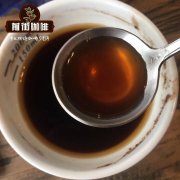The Origin and History of espresso the origin and history of espresso

Professional coffee knowledge exchange more coffee bean information please follow the coffee workshop (Wechat official account cafe_style)
The origin of espresso and espresso
Expresso is considered a spelling mistake by usage experts, who laugh at it for deviating from the original Italian. An early theory of the etymology of the word made the experts more boldly opposed to the spelling. It is believed that espresso in espresso does not refer to the "instant" nature of coffee, but that coffee is "squeezed". Espresso is the past participle of esprimere and comes from the Latin word exprimere. However, it turns out that there is a problem with this reasoning.
Exprimere is the ancestor of our word express. In Latin, Exprimere does mean "squeeze" or "squeeze" among other things. The English verb express means to squeeze out (something, if juice) by pressure, which accurately describes what happens when making espresso-hot water is squeezed out through coffee grounds through steam pressure (about 9 atmospheres).
It is also coffee, especially when used in Italian restaurants, it is possible to quickly "customize" the meaning as a whole from the brewing coffee pot, while Italian esprimere means "expression" of the "input word" or "coffee" does not mean to "suppress" those early uses claimed by commentators.
This has led etymologists to rethink the link between espresso and coffee bean crushing, as well as with the mode of delivery-making coffee "explicitly" for customers.
So does this mean that we have always been wrong about expresso? No, I didn't. Espresso (espresso) is still the original foreign word of Espresso (espresso), but expresso is used enough in English to be included in the dictionary, and there is no x (disqualified) in its Italian etymology. Think of expresso as a weird, nervous variant.
END
Important Notice :
前街咖啡 FrontStreet Coffee has moved to new addredd:
FrontStreet Coffee Address: 315,Donghua East Road,GuangZhou
Tel:020 38364473
- Prev

What is cappuccino? the origin story of cappuccino. The story of cappuccino.
For more information on coffee beans, please follow the Coffee Workshop (Wechat official account cafe_style) Cappuccino definition: espresso, topped with hot sparkling milk or cream, usually flavored with cinnamon. The noble cappuccino (note twice as much as p and c) entered English at the end of the 19th century. The word comes from this drink, which is said to be of color.
- Next

Words describing the aroma and taste of coffee. Words that describe the taste of coffee.
Professional coffee knowledge exchange more coffee bean information Please pay attention to the coffee workshop (Wechat official account cafe_style) different kinds of coffee have different tastes, some may surprise you, each can make coffee drinkers have a different experience. Although coffee is the main ingredient in wine, whisky and craft beer in the minds of many people, specialty coffee is very popular.
Related
- Beginners will see the "Coffee pull flower" guide!
- What is the difference between ice blog purified milk and ordinary milk coffee?
- Why is the Philippines the largest producer of crops in Liberia?
- For coffee extraction, should the fine powder be retained?
- How does extracted espresso fill pressed powder? How much strength does it take to press the powder?
- How to make jasmine cold extract coffee? Is the jasmine + latte good?
- Will this little toy really make the coffee taste better? How does Lily Drip affect coffee extraction?
- Will the action of slapping the filter cup also affect coffee extraction?
- What's the difference between powder-to-water ratio and powder-to-liquid ratio?
- What is the Ethiopian local species? What does it have to do with Heirloom native species?

